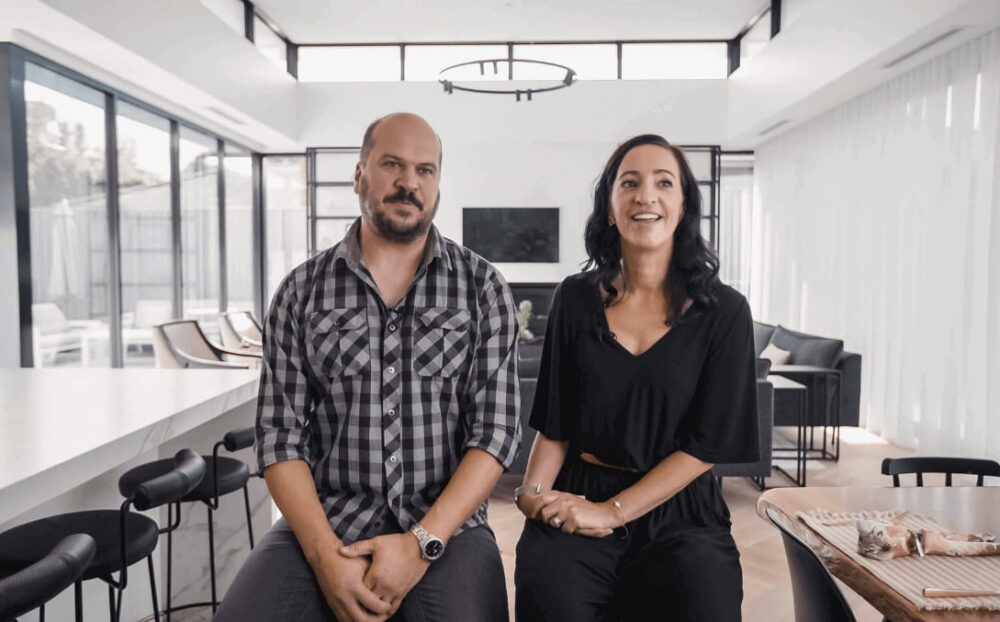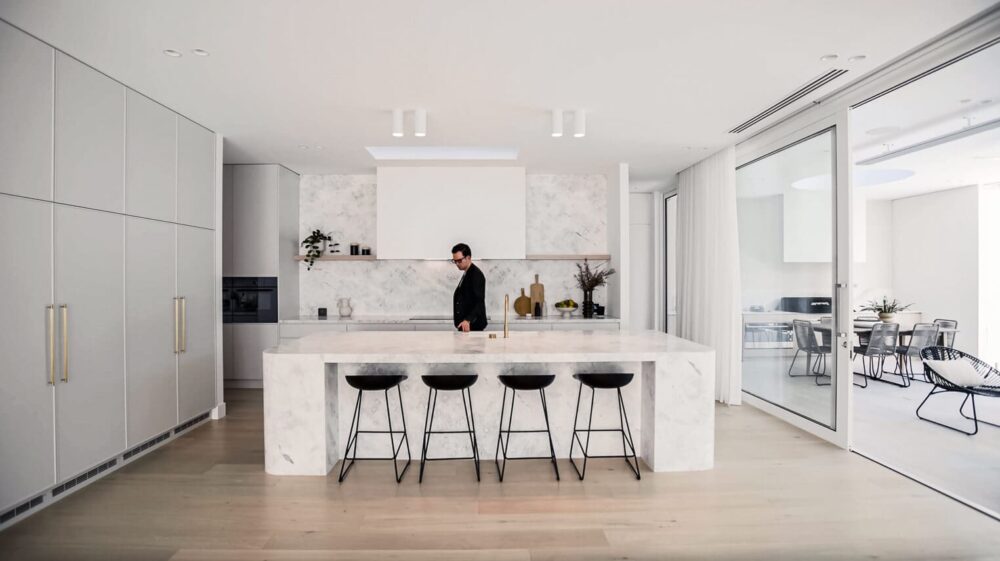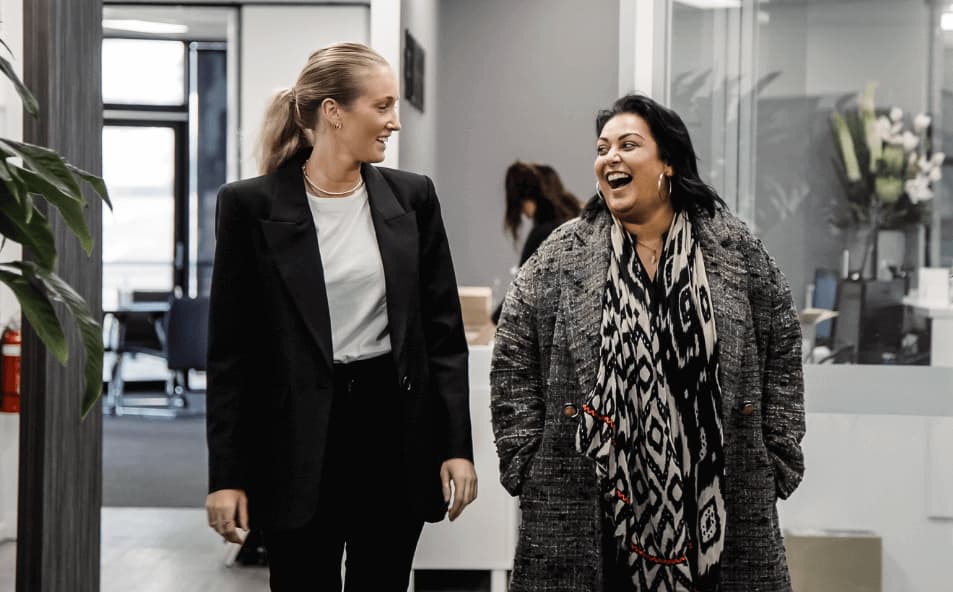6 Tips to Become More Confident in Front of Camera

Are you feeling uncomfortable every time you have to talk in front of the camera?
If that’s the case, you’re not alone. Being awkward on camera is one of the most common fears of business owners.
As you’re talking with the camera directly pointed at you, it’s easy to get distracted by the whole video recording process instead of focusing on the precious insights you have to share with your audience.
But the thing is, video has become a key marketing tool. It can help you better connect with your audience and drive engagement. So, overcoming camera phobia is a no-brainer if you want to increase your sales.
The good news is that all it takes to alleviate your fear is to follow the few steps below.
Mary Jensen from M Power Services is a mindset master and here she lets us in on some of her tips for being comfortable in front of camera.
Don’t Take Yourself Too Seriously
Sure, creating high-quality videos is a serious business.
But you’re only human, and guess what?
So is your audience!
Mistakes happen, and you can even turn them to your advantage. Stuttering, bursting into an uncontrollable laugh, or forgetting a line on camera can add an authentic and genuine feel to your video.
And this, in turn, will help you better connect with your audience. After all, everyone enjoys a good blooper 😉
So, the next time you start recording your video, remember this; perfection can be the enemy of success when it comes to connecting with people.
Your quirks make you who you are and allow you to inject some personality into your brand.
The most important thing is to have fun and show your audience how much you love what you do.
Practice
There’s no magic formula to becoming more comfortable in front of a camera. One of the best ways to get there is simply to do it over and over again.
Let’s be honest. Talking to a camera isn’t the most natural thing in the world. But the more you do it, the more natural it will become.
So, before recording a whole bunch of videos for your brand, set some time apart to practice.
Sit at your desk, press the record button and talk about anything and everything. The content doesn’t matter. Once you’re done, watch the footage and take notes on what you could improve.
This will really help you get better at it, and who knows, one day, you might even love it 😉
Use Your Imagination
What we mean by that is that instead of thinking you’re talking to a lens or device, imagine that you’re talking to someone you know. This is such an effective tip that some journalists admitted to using it when starting their careers.
Imagining all these viewers watching your video can be overwhelming. On the other hand, pretending you’re talking to a familiar face can really help take the pressure off. And this, in turn, will allow you to relax and look more natural on camera.
For instance, pretend that you’re recording this video for a friend or a specific client who needs your help. You can even pretend they’re right there behind the camera and you’re talking to them. Focusing on the one-on-one conversation you’re having with the person you’re visualising when talking to the camera will immediately calm your nerves and improve your screen performance.
Breathing
One of the best ways to relax on camera is to use the box breathing technique. The box breathing technique can help you ground yourself, soothe your nerves and relax your mind and body.
It’s called box breathing because a box has four sides, and the breathing technique can visually be mapped out to look like a box. The idea is to slowly inhale for four counts, hold for four counts, slowly exhale for four counts and hold again for four counts.
Here’s a video that will allow you to better visualise box breathing.
Using Box Breathing To Calm Yourself from DreamCube Productions on Vimeo.
But how does it work exactly? Well, box breathing increases the carbon dioxide levels circulating in your body. And this stimulates your parasympathetic nervous system and signals your body to stay calm and relaxed.
You’ll notice how your body relaxes as you go, making it the perfect technique to get ready to talk in front of the camera. And once you become more familiar with box breathing, you can even increase the count to 7 or 8.
Do Not Use A Detailed Script
Nobody wants to watch someone recite a script. Not only will it feel forced and the opposite of natural, but it’s also just plain boring.
So, while you should have a plan, avoid scripting everything you will say and learn every sentence by heart. Instead, think about the messages and emotions you want to convey and use bullet points to flush out your ideas.
If you know a topic like the back of your hand, you’ll be able to talk about it freely, only using a few bullet points as a thread to guide you through the process. That way, you can sound more natural and keep your audience interested as you talk to them.
Smile

You’re never fully dressed until you’re wearing your smile, which applies to when you’re on camera too! A smile can go a long way in helping you connect with your viewers and make you more relatable.
That’s because not only does smiling as you talk show your audience you’re happy to share your knowledge, but it also makes you more likeable and personable. Think about watching a video of someone who never smiles. Pretty off-putting, right? On the other hand, someone always smiling will make you want to keep watching.
Also, don’t forget to blink. This is pretty common when people are nervous in front of the camera. They forget to smile and even blink, which can give off a serial-killer vibe!
But more seriously, looking stiff, very serious, and barely blinking will make it difficult for people to relate and connect with you.
So, keep this in mind the next time you press the record button.
Lookup

If you’re getting ready to present on camera and you’re looking down, you will be definitely feeling some anxiety.
The way to change that feeling is to look up. When your eyeballs look up to the sky, the visual part of your brain will take control and will alleviate the anxiousness or fear.
And that’s a wrap for today!
We hope these tips will help you feel more confident when talking to the camera. And if you need help with your video production or marketing process, don’t hesitate to get in touch. At DreamCube Productions, we specialise in helping business owners like you create unique and high-converting videos. We’re passionate about videography and would love to help with your next video project.
If you want to learn more about feeling awesome on filming day, check out our ‘6 Foods to Avoid Before Filming Day’ blog










